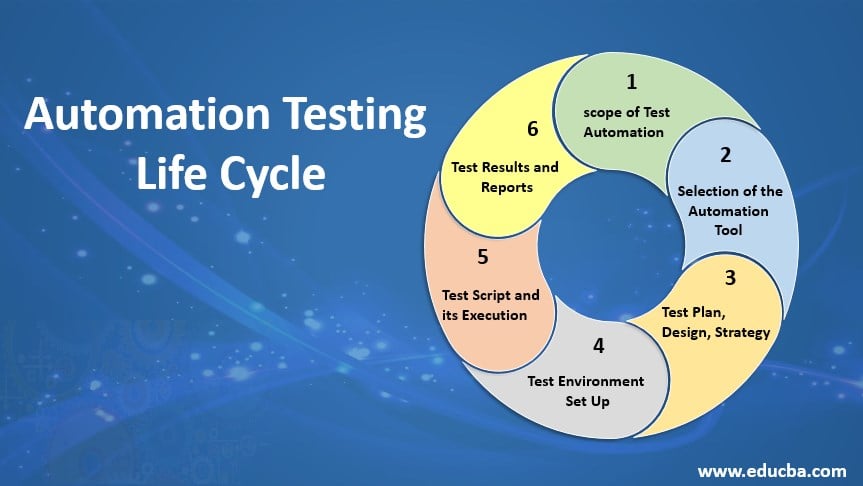Guaranteeing Success in Automation Checking: Secret Metrics, Difficulties, and Solutions Every QA Team Ought To Know
In the realm of software program top quality guarantee, the landscape of automation screening is ever-evolving, requiring a thorough technique to ensure seamless operations. Trick metrics function as the compass directing QA teams via the huge surface of examination automation, clarifying progression and areas for enhancement. Obstacles impend large, commonly casting shadows on the course to success. By understanding these hurdles and applying efficient remedies, QA groups can browse through complexities with skill. The journey to mastering automation testing is paved with nuances that need an eager eye for tracking, evaluation, and continuous improvement. automation testing. As the sector thrusts forward, the pursuit for optimal performance in automation testing continues to be a constant search, advising QA teams to outfit themselves with the understanding and methods necessary for victory.
Importance of Key Metrics
Recognizing the relevance of vital metrics is necessary for examining the efficiency and efficiency of automation testing processes. Trick metrics work as quantifiable procedures that give useful insights into numerous aspects of the testing process, such as examination coverage, examination execution time, issue thickness, and test case effectiveness. By evaluating these metrics, QA teams can identify bottlenecks, ineffectiveness, and areas for enhancement within their automation testing framework.
One critical aspect of essential metrics is their capacity to track progression and keep track of the general health and wellness of the screening process (automation testing). They enable stakeholders to make enlightened decisions based upon data-driven understandings, which can bring about much more reliable testing strategies and much better resource allowance. Additionally, crucial metrics can help groups set practical objectives, determine the success of automation campaigns, and demonstrate the ROI of automation testing efforts

Common Difficulties Dealt With
Obstacles commonly experienced in automation screening processes can significantly impact the overall efficiency and performance of QA teams. One of the major difficulties is the selection of the appropriate test situations for automation. Not all examination situations are ideal for automation, and picking the incorrect ones can lead to squandered time and resources. In addition, keeping examination manuscripts can be a complicated job, especially as the application goes through regular adjustments. Examination script upkeep requires constant updates and alterations to ensure they mirror the existing performance precisely. Another usual obstacle is the first investment needed for establishing automation frameworks and tools. This can be a barrier for some organizations, specifically smaller sized ones with restricted spending plans. Furthermore, automation screening may not cover all elements of screening, such as functionality and user experience screening, which still need manual treatment. Getting over these difficulties calls for appropriate planning, tactical test case choice, durable upkeep procedures, sufficient resources, and a clear understanding of weblink the limitations of automation screening.
Effective Solutions for Obstacles
To resolve the obstacles experienced in automation screening, carrying out reliable options is important for boosting the performance and site web performance of QA groups. One vital option is to invest in durable training programs for QA teams to guarantee they have the essential abilities to effectively utilize automation devices. Training can connect knowledge voids, improve understanding of automation frameworks, and enhance scripting abilities, ultimately leading to a lot more reliable test development and execution.
One more important solution is to develop clear communication channels within the QA team and with various other stakeholders, such as designers and project supervisors. Effective communication aids in aligning assumptions, sharing development updates, and immediately resolving issues or roadblocks that may emerge throughout the automation screening process.

Monitoring and Analysis Techniques
Executing efficient tracking and analysis techniques is crucial for making sure the success and efficiency of automation testing procedures. In addition, evaluating examination outcomes and metrics gives valuable understandings right into the quality of the software application being tested and the efficiency of the screening approach.
One key method in surveillance and evaluation is the usage of control panels that settle pertinent metrics and KPIs in a visually available layout. These dashboards provide an extensive review of examination execution status, test coverage, flaw trends, and other vital information. Routinely original site assessing and assessing these dashboards can aid QA teams make informed choices, prioritize tasks, and enhance screening efforts.
Moreover, executing automated notifies and notifications based on predefined limits can boost proactive tracking and prompt intervention. By setting up alerts for performance deviations or test failures, teams can address issues promptly and prevent them from rising. On the whole, monitoring and evaluation methods play an essential function in ensuring the efficiency and success of automation screening initiatives.
Continual Enhancement Methods
Enhancing the efficiency of automation testing procedures requires the regular improvement of methods and approaches. One essential strategy to improving automation testing processes is to conduct normal reviews and retrospectives.

Final Thought
In conclusion, it is vital for QA teams to comprehend the essential metrics, difficulties, and options in automation screening to make sure success. By carefully keeping track of and assessing data, applying reliable options to common difficulties, and constantly improving strategies, QA groups can optimize their screening processes and deliver top notch software. Sticking to these techniques will eventually lead to a lot more effective and efficient automation screening techniques.
By assessing these metrics, QA teams can recognize traffic jams, inefficiencies, and locations for renovation within their automation testing structure.
Furthermore, essential metrics can aid teams set realistic goals, gauge the success of automation efforts, and demonstrate the ROI of automation screening initiatives.
Difficulties frequently encountered in automation testing procedures can significantly affect the general effectiveness and efficiency of QA groups. Automation screening may not cover all facets of testing, such as use and customer experience screening, which still require hands-on treatment.In conclusion, it is critical for QA teams to recognize the vital metrics, challenges, and remedies in automation testing to guarantee success.
Comments on “Understanding Automation Testing: Tools, Methods, and Benefits”